Taking your medicine every day shouldn’t feel like a chore. Yet for millions of people managing chronic conditions-whether it’s high blood pressure, diabetes, depression, or asthma-it does. The problem isn’t laziness or forgetfulness. It’s that taking pills doesn’t naturally fit into daily life. But here’s the good news: you don’t need to rely on willpower. You need behavioral tricks.
Why Willpower Alone Fails
Most people think if they just remembered to take their meds, they’d be fine. But memory isn’t the real issue. It’s about consistency. Your brain doesn’t care if a pill is important-it cares about ease. If taking your medicine requires effort, your brain will find a way to skip it. That’s why 50% of people with long-term illnesses don’t take their meds as prescribed. The result? Over 125,000 preventable deaths in the U.S. each year, and billions in avoidable hospital bills. The fix isn’t more alarms or bigger pill organizers. It’s making the habit automatic. Behavioral science shows that when you tie a new behavior to something you already do every day, your brain starts doing it without thinking. That’s habit stacking. And it works.Start with the Simplest Trick: Time + Routine
Pick one time every day to take your medication. Not “morning.” Not “after breakfast.” Exactly 7:30 a.m., right after you brush your teeth. Why? Because brushing your teeth is already wired into your brain. It’s automatic. You don’t have to decide to do it-you just do it. A 2020 study in Patient Preference and Adherence found that people who took their meds at the same time every day improved adherence by 15.8%. That’s not a small gain. That’s life-changing. The key? Don’t pick a time that’s flexible. Pick a time that’s fixed. Morning, after lunch, before bed-doesn’t matter. Just pick one and stick to it.Stack Your Medication on an Existing Habit
Habit stacking is one of the most powerful tools in behavioral psychology. You take something you already do without thinking and attach your new habit to it. Here’s how:- Take your pill right after you pour your morning coffee.
- Put your evening meds next to your toothbrush-take them after flossing.
- Keep your insulin pen on the kitchen counter next to your lunchbox.
Use Visual Cues, Not Just Alarms
Phones buzz. Alarms get ignored. But your eyes? They’re always looking. Place your pill bottle where you’ll see it. Not in the bathroom cabinet. Not in the drawer. On the counter. On your nightstand. Next to your keys. One woman with type 2 diabetes kept missing her metformin. She moved her bottle from the medicine cabinet to the toaster. Every morning, she saw it when she made toast. Within two weeks, she was taking it every day. No app. No reminder. Just a bottle and a toaster. For people with memory issues-like early-stage dementia-visual cues are even more critical. A 2022 study in Alzheimer’s & Dementia found that pairing meds with daily routines and placing them in plain sight raised adherence from 48% to 79%.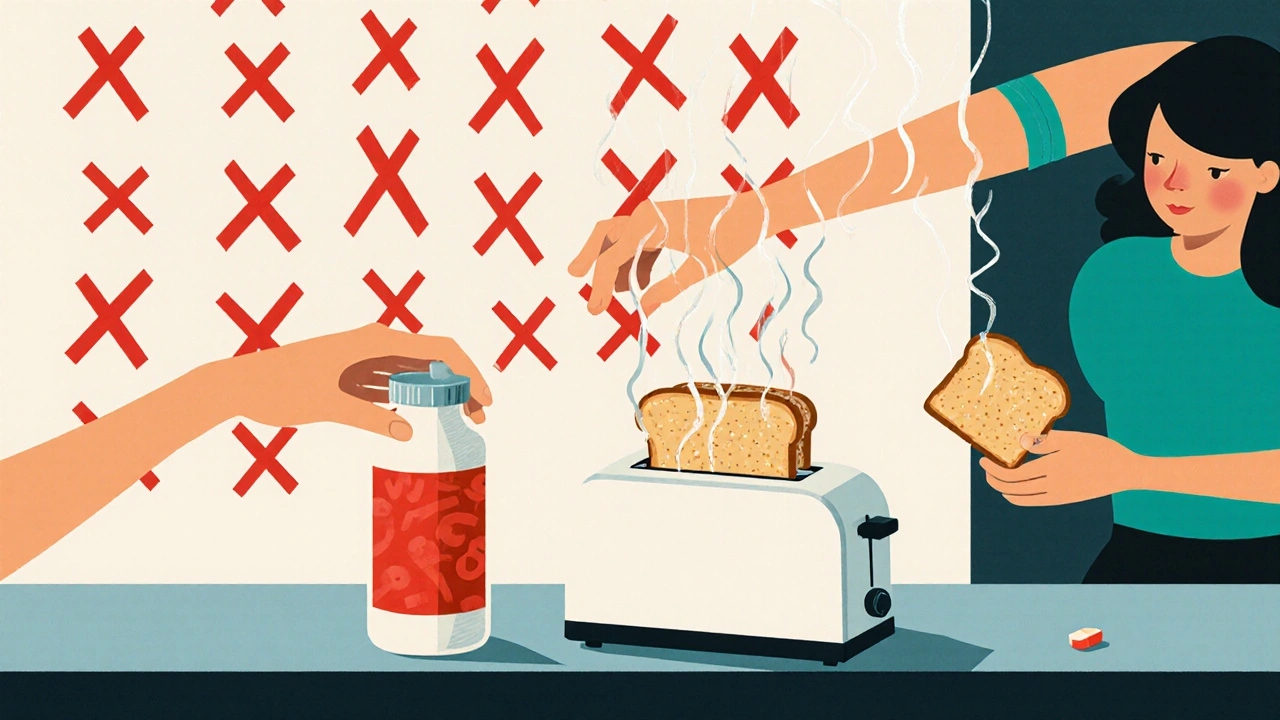
Track It-But Keep It Simple
Tracking isn’t about perfection. It’s about awareness. You don’t need a fancy app. Just grab a calendar. Mark an X every day you take your meds. Do it the same time every day. Put it on the fridge. Put it on your bathroom mirror. A 2005 study by Cochran found that bipolar patients who used daily medication charts improved adherence by 19.3%. Why? Because seeing the chain of X’s creates a psychological pull-not to break it. You don’t want to miss one day and ruin the streak. That’s the power of visual feedback. If you like tech, use a simple app with a progress bar. But don’t get lost in features. The goal isn’t to collect data. It’s to build momentum.Reduce the Friction
The easier it is to take your meds, the more likely you are to do it. That means simplifying your regimen. If you’re on five different pills, ask your doctor if any can be combined. A 2011 meta-analysis of over 21,000 patients showed that single-pill combinations increased adherence by 26%. That’s huge. Fewer pills. Fewer decisions. Fewer chances to forget. Also, use a weekly pill organizer. Not the kind with 28 compartments. Just a simple one with morning and evening slots. Fill it once a week. Done. No thinking. No counting. Just grab and go. And don’t forget auto-refills. A 2022 study in Medical Care found that patients enrolled in pharmacy auto-refill programs improved medication continuity by 33.4%. No more running out. No more last-minute pharmacy trips.Use Technology-But Only the Right Kind
Smartphones can help. But not all apps are created equal. A 2021 meta-analysis in JMIR mHealth and uHealth found that smartphone reminders improved adherence by 28.7%. But here’s the catch: generic alarms don’t work. Personalized messages do. “Hey, it’s 8 a.m.-your blood pressure pill is waiting.” That’s better than “Take your meds.” Look for apps that:- Let you set custom times
- Show a visual progress chart
- Sync with your doctor’s system
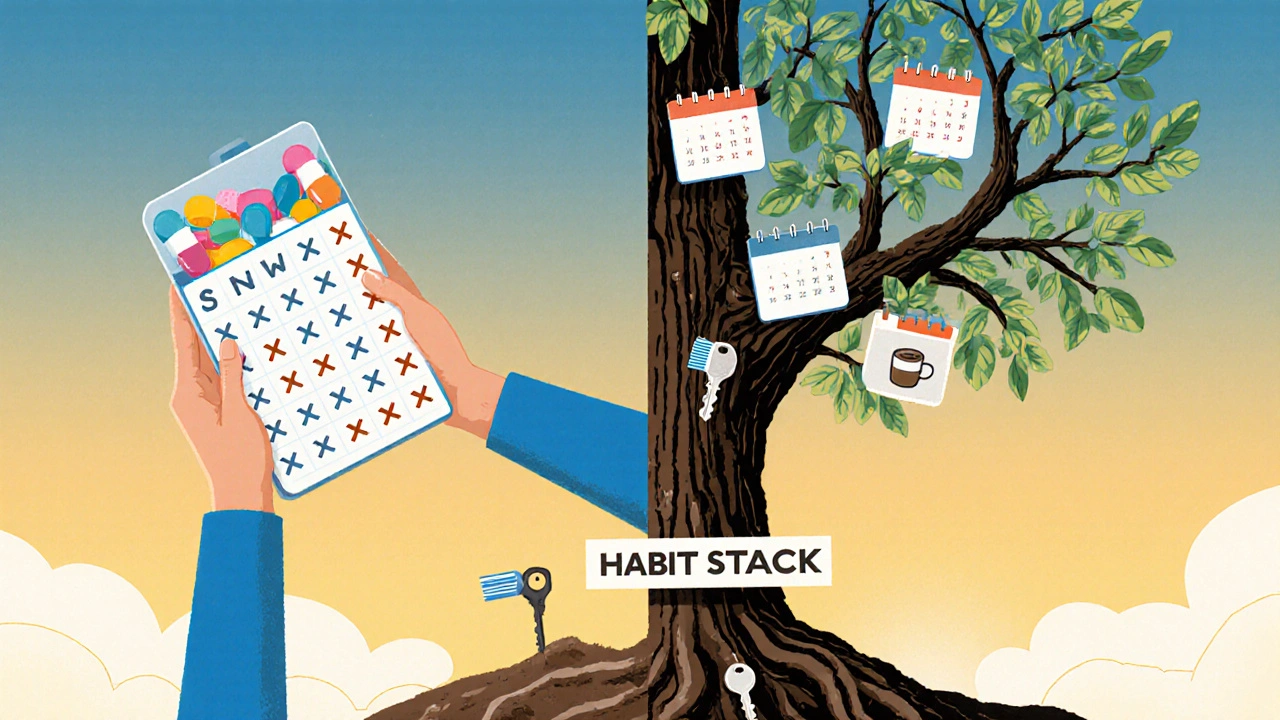
Address the Real Barriers
Sometimes, the problem isn’t forgetfulness. It’s fear. Cost. Side effects. Shame. If you’re skipping meds because they’re too expensive, talk to your pharmacist. Many drugs have patient assistance programs. Generic versions exist. Mail-order pharmacies often cost less. If you’re worried about side effects, don’t guess. Ask your doctor. A 2019 review in the Journal of General Internal Medicine found that personalized counseling improved adherence by 18.3%. You can’t fix a problem you don’t understand. And if you feel guilty about missing doses? You’re not alone. Motivational interviewing-a technique used by trained counselors-helps people explore their own reasons for taking meds. A 2020 study showed it improved adherence by 22.1%. It’s not about being told what to do. It’s about finding your own “why.”Long-Term Solutions: LAIs and Smart Pills
For some, daily pills will always be a struggle. That’s where long-acting injectables (LAIs) come in. These are shots given every few weeks or months instead of daily pills. A 2022 meta-analysis in Schizophrenia Bulletin showed LAIs cut non-adherence by 57% in people with serious mental illness. Even newer: smart pills with sensors. These tiny trackers send a signal when swallowed, letting your doctor know you took your dose. A 2023 JAMA Internal Medicine study found they improved adherence by 34.7% in heart failure patients. These aren’t magic. But they’re options. If you’ve tried everything else and still struggle, ask your doctor: “Is there a longer-acting version of this medication?”What Doesn’t Work
Don’t waste time on single fixes that don’t stick:- Pill organizers alone? Only help by 8.4%.
- Generic text reminders? Less effective than personalized ones.
- Scolding yourself for missing doses? Makes you feel worse, not better.

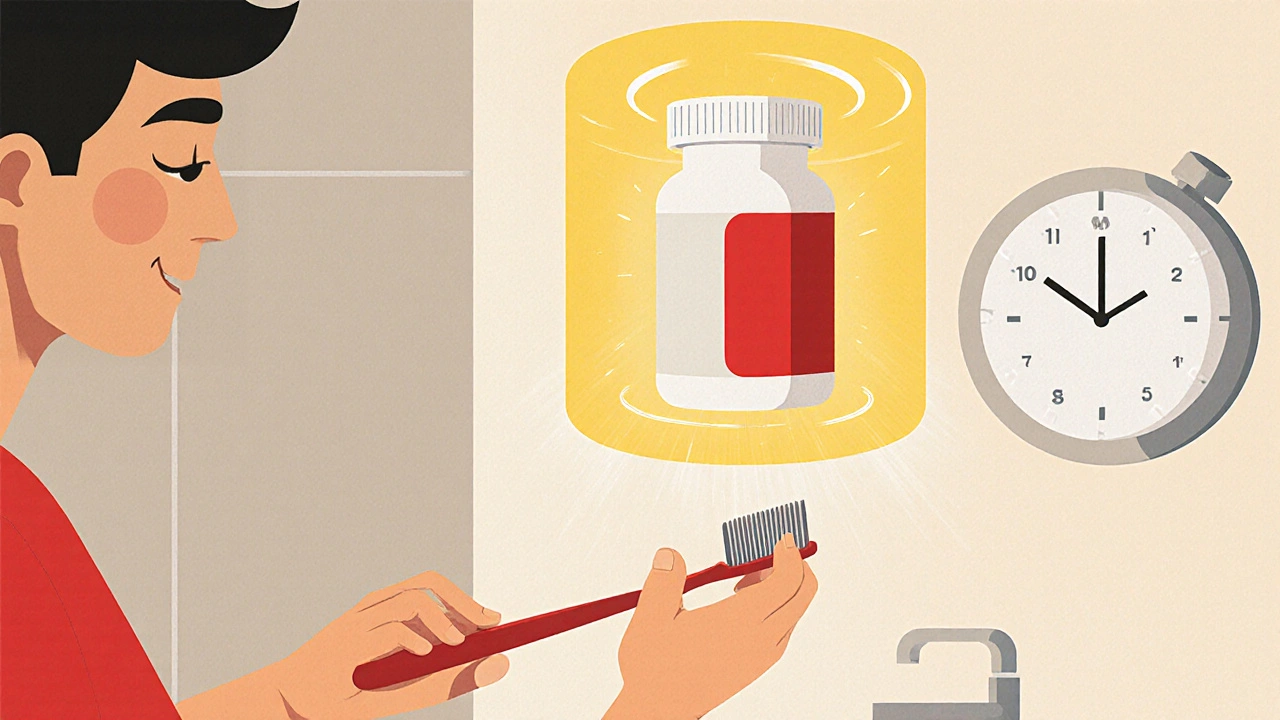



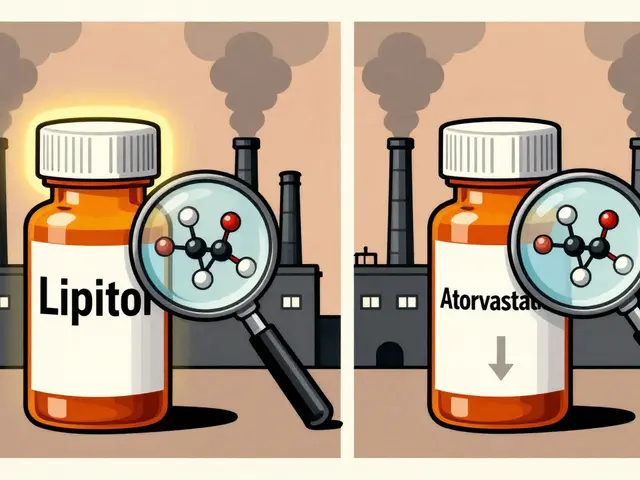
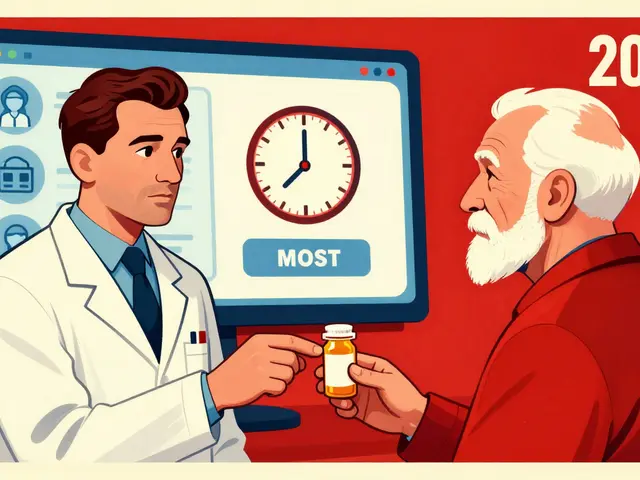
Dana Dolan
November 19, 2025 AT 09:37Putting my pill bottle next to my coffee maker changed everything. I used to forget until noon, then feel like a failure. Now? I grab it while the coffee’s brewing. No thought required. Life’s too short to fight your own brain.
Zac Gray
November 21, 2025 AT 01:39Look, I get it-behavioral hacks are sexy. But let’s not pretend this is magic. I’ve got a diabetic uncle who did all this: toothbrush pairing, visual cues, weekly organizers. Still missed doses because his meds cost $400 a month and he works two jobs. No amount of habit stacking fixes systemic neglect. The real trick? Make meds affordable. Everything else is just decoration.
Marjorie Antoniou
November 21, 2025 AT 20:51My mom had early dementia and used to hide her pills because she thought they were poison. We put them next to her toothbrush, wrote ‘I’m safe’ on the bottle in marker, and she started taking them every night after brushing. She didn’t understand why-but she trusted the routine. This isn’t just science. It’s love made visible.
Chuck Coffer
November 23, 2025 AT 19:22Wow. Another article telling people with chronic illness they’re just lazy because they didn’t put their pills by the toaster. Congrats. You’ve solved healthcare by blaming the patient. Meanwhile, the pharmaceutical industry is laughing all the way to the bank. Maybe stop treating symptoms and start fixing the system that makes people choose between insulin and rent?
seamus moginie
November 24, 2025 AT 19:30As a man who’s been on blood pressure meds for 12 years, I can tell you this: willpower is a myth. I used to take them when I felt like it-until I started stacking them with my morning shave. Now, I don’t even think about it. It’s like breathing. If you’re still struggling, you’re not broken-you just haven’t found your anchor habit yet. Try it. You’ve got nothing to lose but bad health.
Derron Vanderpoel
November 26, 2025 AT 05:55OMG I did the toaster thing too!! I had my metformin in the cabinet and kept forgetting… then I put it next to the toaster and now I take it every morning while waiting for my bread to pop. I didn’t even realize I was doing it until my sister said ‘you’re like a robot now’ 😂 I’m not even trying anymore. It just happens. This is the best thing I’ve ever done for myself.
Michael Salmon
November 27, 2025 AT 03:3027% adherence increase? That’s not a win-that’s a failure. If 73% of people still skip meds after all this, then the entire model is flawed. You’re treating symptoms of a broken system like it’s a personal discipline problem. Smart pills? LAIs? Cute. But if you can’t afford the damn thing, none of this matters. Stop glorifying band-aids and call out the real villain: profit-driven healthcare.
Ellen Calnan
November 28, 2025 AT 22:16There’s a quiet revolution happening here-not in labs or hospitals, but in kitchens and bathrooms. It’s not about willpower. It’s about design. Our brains aren’t wired for abstract health goals. They’re wired for routine, for cues, for tiny wins. That’s why putting your pill on the counter works. It’s not magic. It’s neuroscience made practical. And it’s beautiful. We don’t need more lectures. We need more toasters.
Timothy Reed
November 30, 2025 AT 19:41One thing I’d add: consistency beats perfection. I missed a day last week because my power went out and my pill organizer was in the basement. I didn’t panic. I took it when the lights came back on. No guilt. No self-flagellation. Just resumed. That’s the real secret-the habit survives the stumble. The goal isn’t flawless execution. It’s returning to the pattern. That’s resilience.
Joe Durham
December 2, 2025 AT 14:43My dad took his meds for 15 years. Then he got a new doctor who switched him to a once-a-week combo pill. He cried. Not because he was sad-because he hadn’t realized how much mental energy he’d been spending just remembering. One pill. One time. No more counting. No more stress. That’s the real win-not the toaster, not the app. It’s reducing the burden. Simplicity is the ultimate sophistication.